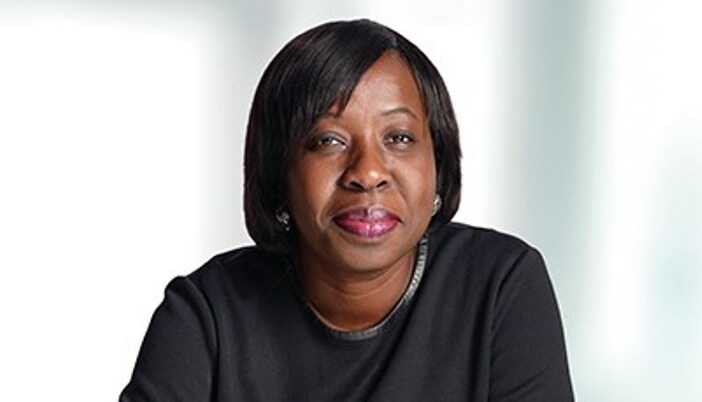Innovation is the lifeblood of the tech industry, driving change and progress at a breakneck pace. And few people embody this spirit of innovation better than Funke Opeke, the visionary founder of MainOne.
Her career spans more than two decades in the United States and Africa, and she’s helped with some of the biggest tech development stories.
MainOne helps connect millions of people to the digital world in West Africa today as a leading provider of broadband infrastructure solutions. So join us as we explore this trailblazing entrepreneur and her ongoing quest to revolutionize innovation in the tech industry.
Who is Funke Opeke?
Funke Opeke is a name that has become synonymous with innovation in the tech industry, particularly in Nigeria. She is the founder and CEO of MainOne, a company that provides telecom and network solutions to businesses in Nigeria and West Africa.
Since founding the company in 2010, Opeke has become a trailblazer in the male-dominated tech industry, showing that women can excel in this field. Opeke’s journey in the tech industry began after she returned to Nigeria from the United States, where she worked with some of the biggest names in the tech industry, including Verizon and MTN.
In 2008, she identified a gap in the Nigerian telecoms market and started MainOne to provide much-needed network solutions to businesses in Nigeria and West Africa.
Funke Opeke’s Upbringing
Funke Opeke, originally from Ile-Oluji, Ondo state, grew up in Ibadan, the capital city of Oyo state. She was born into a family of nine, and her father was the first Nigerian director of the Cocoa Research Institute of Nigeria, while her mother was a teacher.
After completing her secondary education at Queens School, an all-girls school in Ibadan, she studied electrical engineering at Obafemi Awolowo University in Ile-Ife, Osun State, Nigeria. Funke’s parents were highly successful, and they inspired Funke Opeke and her siblings to have big dreams and use their gifts. It is an example of the phrase, “The apple does not fall far from the tree.”
Late Professor Chief L.K. Opeke, Funke Opeke’s father, achieved several notable accomplishments during his lifetime. Among these was being the first Nigerian to hold the director position at the Cocoa Research Institute of Nigeria. They also awarded him the World Cocoa Gold Merit Award and were a director of Cocoa Industries Ltd, one of Nigeria’s major companies during the 1980s.
In addition to these achievements, he served as a member of the first Senate of the Federal University of Technology in Akure, Ondo state, where he was also the Dean of the School of Agriculture & Agricultural Technology. Her mother, who is now retired, was a teacher who held leadership positions at several Catholic private schools.
Her Innovation in the Tech Industry
One of the most remarkable things about Opeke’s leadership style is her commitment to innovation. She is instrumental in driving innovation at MainOne, leading the company to develop some of Nigeria’s most advanced telecom and network solutions.
Under her leadership, MainOne built West Africa’s largest data center, which is a hub for businesses looking to expand their operations in the region.
But perhaps what is most inspiring about Opeke is her dedication to promoting gender diversity in the tech industry. She speaks extensively about the need for more women to take up roles in the industry and is a vocal advocate for women’s rights in the workplace.
Opeke has shown that women can lead and innovate in the tech industry, and her example is inspiring a new generation of women to pursue careers in the field.
Through her work at MainOne, Opeke is changing the tech industry landscape in Nigeria and West Africa. It is glaring that innovation and leadership are not the exclusive preserve of men and that women can excel in the tech industry.
Her story is one of resilience, hard work, and determination, and it inspires women worldwide who aspire to break barriers in their chosen fields.
The Reason for Starting MainOne, and What the Initial Vision Was.
Funke Opeke founded MainOne to bridge the digital divide and extend internet connectivity to West Africa, aiming to accelerate the pace of development and improve the region’s quality of life.
After witnessing the explosive growth of the internet and gaining professional expertise in the field during her two decades in the United States, Funke Opeke founded MainOne to bridge the digital divide and extend internet connectivity to West Africa, aiming to accelerate the pace of development and improve the region’s quality of life.
Through MainOne, Funke Opeke aimed to bring the same technological advancements and opportunities to Africa that were transforming other regions to ensure they would not leave Africans behind in the global digital landscape.
MainOne aimed to create new opportunities for education, commerce, and communication by expanding access to internet services and enabling Africans to participate fully in the digital age.
How MainOne Created Innovation in the Tech Industry Over the Years
MainOne, which built West Africa’s first privately owned submarine cable, has grown into a primary provider of broadband infrastructure solutions, including connection and data center services, two telecommunications companies, businesses, and governments across the region.
MainOne has made significant investments in regional commercial Tier III data centers and terrestrial fiber networks to achieve this transformation, expanding its services and geographic reach over the years. As a result, the company has built a strong reputation for reliability and innovation, offering a wide range of connectivity and data center services that have helped to transform the digital landscape in West Africa.
Despite the challenges posed by being a woman in the tech industry, Ms. Opeke has succeeded in expanding MainOne’s offerings while maintaining a commitment to providing high-quality, affordable services to its customers.
With a sound track record of success and a continued focus on innovation and investment, MainOne is well-positioned to generate value for its customers and stakeholders well into the future.
Funke Opeke is a shining example of how women can lead successful innovation in the tech industry. As we celebrate her achievements, we must also look to the future and work towards creating a more inclusive and diverse tech industry that empowers women to succeed.


